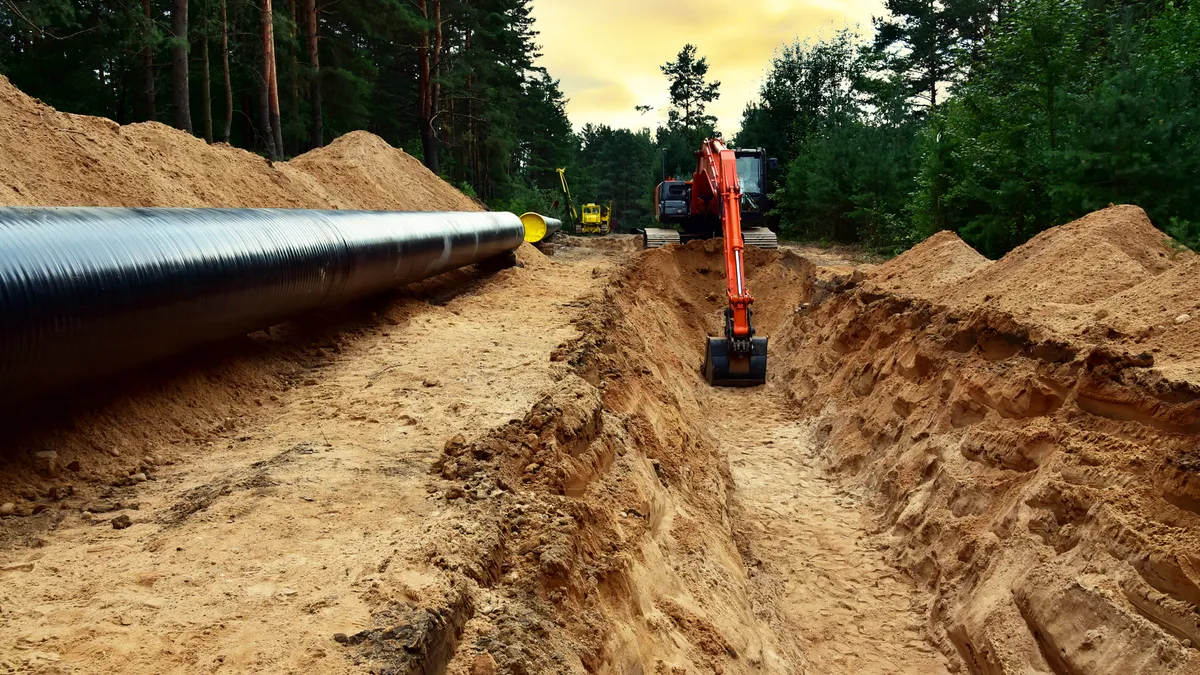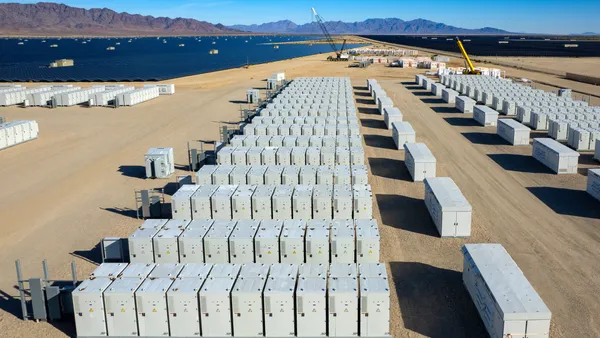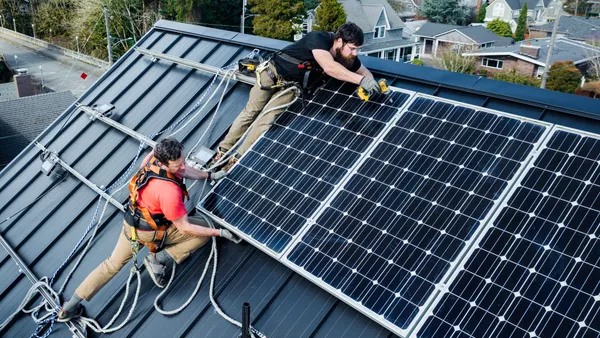Dive Brief:
-
A federal appeals court upheld the Federal Energy Regulatory Commission’s approval of the MVP Southgate natural gas pipeline project between Virginia and North Carolina that is being developed by a joint venture of Equitrans Midstream Corp., NextEra Energy, AltaGas and RGC Resources.
-
The U.S. Court of Appeals for the District Court of Columbia Circuit on Tuesday ruled that FERC appropriately reviewed the project’s environmental effects and properly set a 14% return on equity for the pipeline.
-
However, the pipeline faces other legal challenges and the Southgate developers are in talks with Dominion Energy North Carolina, the pipeline’s anchor shipper, about possibly changing the scope of the project, Equitrans said in a May Securities and Exchange Commission filing.
Dive Insight:
The roughly $500 million Southgate project, approved by FERC in 2020, would run about 75 miles from the southern end of the mostly built and long-delayed Mountain Valley Pipeline in Virginia into central North Carolina.
Environmental groups led by the Sierra Club asked the appeals court to overturn FERC’s decision, saying the approved ROE was too high for an expansion project and that the agency approved practices for preventing erosion and sedimentation that had failed to work on the mainline project.
In part, the groups’ argument about the ROE reflected a partial dissent by now-FERC Chairman Richard Glick, who said Mountain Valley Pipeline LLC, the consortium developing the MVP and Southgate projects, is more like an existing pipeline company proposing an expansion project than a new market entrant proposing a greenfield pipeline. Glick said the Southgate project should receive a 10.55% return.
On the ROE issue, the court agreed with FERC’s reasoning that the Southgate project deserved a 14% return because the MVP consortium lacked any revenue and was effectively a new market entrant.
The court also ruled the agency adequately considered measures to limit erosion and sedimentation from the pipeline.
“Because the commission’s decisions on both scores were reasonable and supported by substantial evidence, we deny the petition for review,” Judge Robert Wilkins, who wrote the opinion, said.
Despite the court victory, the Southgate project still faces major hurdles.
On June 24, the project developers asked FERC to extend the required in-service date for the MVP project by four years to mid-October 2026.
“Due to the uncertainty regarding the timing of reinstatement of the necessary permits, the ongoing barrage of attacks on the project’s permits, authorizations, and applications, and the outcomes of ongoing and future legal challenges, a four-year extension of time, both for the mainline project, as amended, and the related Greene interconnect, is necessary and proper,” the developers said.
Meanwhile, the North Carolina Department of Environmental Quality in April 2021 for a second time denied the project developers’ application for a Clean Water Act Section 401 water quality certification and Jordan Lake riparian buffer authorization. Equitrans, which is leading the project development, is considering its options, including refiling the application, the company said in the May SEC filing.
Also, the Virginia State Air Pollution Control Board in December denied an air permit for a compressor station for the Southgate pipeline. The project developers asked the Fourth Circuit Court of Appeals to review the decision, but in late March withdrew that request, according to the SEC filing.
Further, the consortium is considering changing the Southgate project.
“The MVP joint venture continues to evaluate the MVP Southgate project, including engaging in discussions with the project shipper, Dominion Energy North Carolina, regarding options with respect to the project, including potentially refining the project’s design and timing in lieu of pursuing the project as originally contemplated,” Equitrans said.
In December, Equitrans took a $1.9 billion pre-tax charge related to its investment in the MVP venture, driven by court decisions delaying the MVP pipeline, the company noted.
Equitrans said it may have to further write down its investment in the joint venture because of ongoing and potential legal and regulatory issues, as well as potential macroeconomic factors, including market fluctuations, changes in interest rates, cost increases and other unanticipated events.
The appeals court decision will hurt vulnerable communities and water quality, according to Caroline Hansley, Sierra Club senior campaign representative.
“This project is not needed and is years behind schedule — with no completion in sight, billions over budget, and still lacking multiple necessary permits,” Hansley said Tuesday in a statement.















